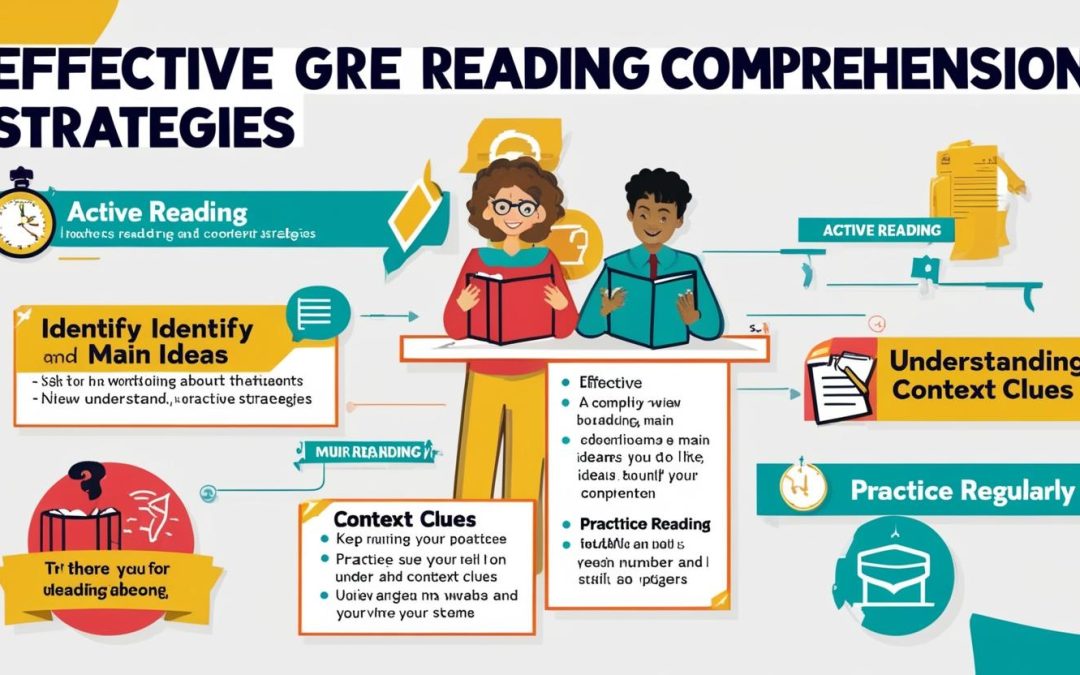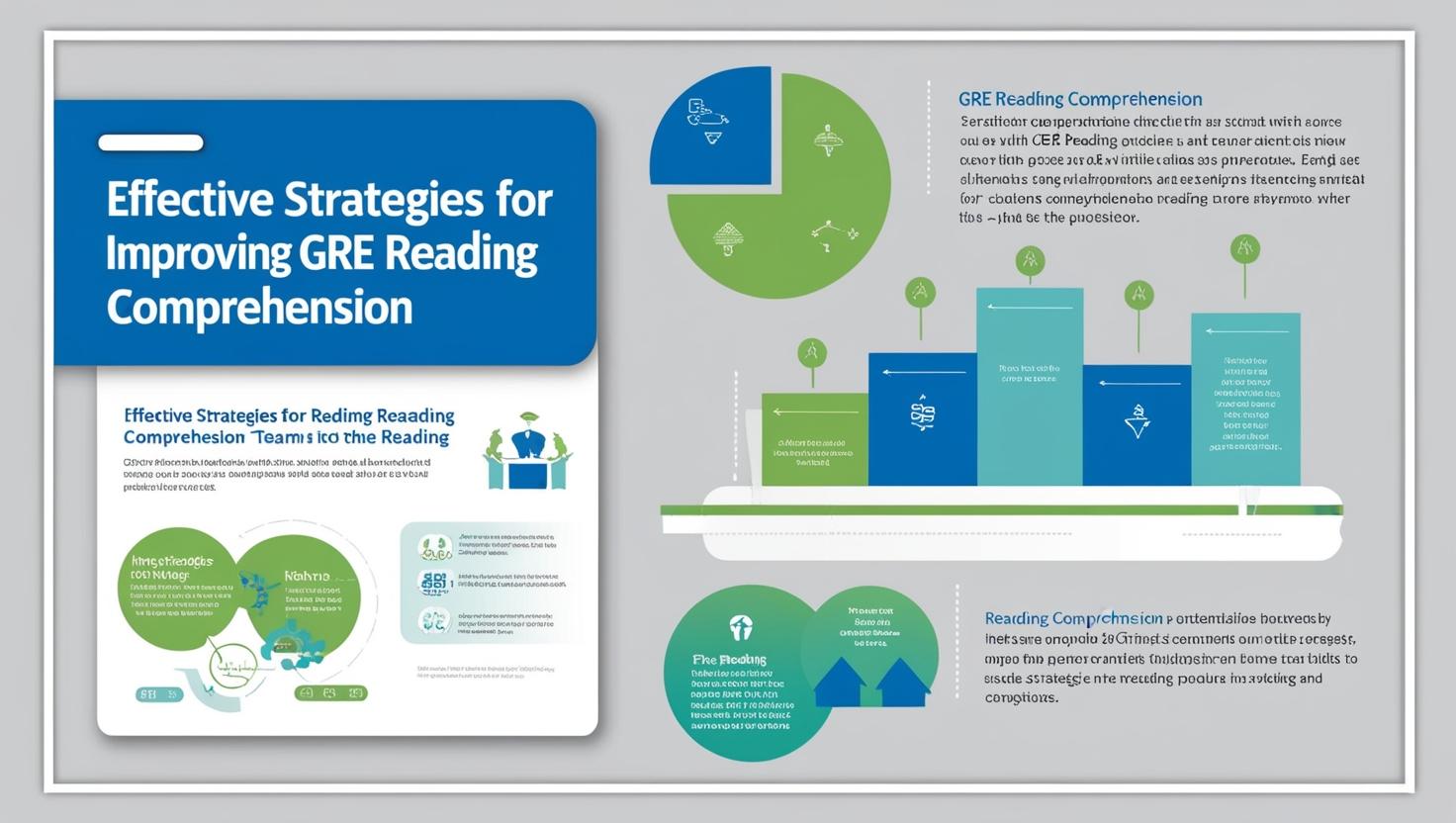Reading comprehension can be one of the trickiest sections of the GRE, but it doesn’t have to be overwhelming! If you’re preparing for the GRE, you might be wondering how to tackle those lengthy passages and complex questions that seem to take forever to read and understand. The good news is that with the right strategies, you can significantly improve your reading comprehension skills and walk into the exam feeling confident. At TakeMyGREExam.com, we’re here to help you with practical tips and techniques that will make all the difference.
Why Is Reading Comprehension Important for the GRE?
On the GRE, the reading comprehension section is a key part of the verbal reasoning section. It consists of several passages followed by a series of questions that test your ability to understand, analyze, and interpret written material. These passages can cover a range of topics, from the humanities to the sciences, so it’s important to be prepared for anything.
Your score on this section can make a big impact on your overall GRE score, so it’s crucial to approach it strategically. Let’s take a look at some tried-and-true strategies that will help you improve your reading comprehension and get that higher score.
1. Preview the Passage
Before diving into the questions, take a few seconds to quickly skim the passage. You don’t need to read every word in detail just get a general idea of what the passage is about. Look for the main idea, key arguments, and any unfamiliar words or phrases. This quick preview will give you a mental map of the passage, making it easier to follow when you move on to the questions.
2. Focus on the Main Idea
Many students get bogged down in the details, but on the GRE, the most important thing is understanding the main idea of the passage. The questions are often designed to assess your ability to identify the passage's central argument or theme, so focus on the big picture. Ask yourself: "What is the author trying to convey here?" If you can answer this question, you’ll be well on your way to answering the questions correctly.
3. Pay Attention to the Structure
A lot of GRE reading passages are structured in a way that helps guide you through the content. Pay attention to how the passage is organized. Does it have an introduction, body, and conclusion? Are there any transition words or phrases that indicate a shift in the argument? Recognizing these structural clues will help you navigate the passage more easily and understand how the ideas are connected.
4. Highlight Key Details (Without Overdoing It)
While it’s important to focus on the main idea, you should also make note of key details that support the author’s argument. As you read, highlight or underline important facts, examples, and quotes that may come up in the questions. However, don’t overdo it if you mark up every sentence, you’ll end up spending too much time on the passage and miss valuable information.
5. Practice Active Reading
Reading passively won’t help you retain the information you need to answer questions correctly. To truly understand the passage, practice active reading. This means engaging with the material as you read ask questions, make predictions, and try to relate the ideas in the passage to what you already know. The more engaged you are, the better you’ll be at understanding the content.
6. Answer the Questions Carefully
Once you’ve read the passage, it’s time to tackle the questions. Start by reading the questions carefully, making sure you understand what each one is asking. Don’t rush through them take your time to analyze each question and refer back to the passage as needed.
Be sure to look for keywords in the questions that tie directly back to specific parts of the passage. Also, remember that some questions may be designed to trick you, so avoid picking answers that sound good but don’t directly align with the author’s argument.
7. Eliminate Incorrect Answers
If you’re unsure about an answer, try eliminating the obviously incorrect options first. By narrowing down your choices, you increase your chances of selecting the right answer. Sometimes, even if you don’t know the exact answer, you can figure it out by eliminating the choices that don’t fit with the passage.
8. Practice, Practice, Practice.
The more you practice reading comprehension questions, the better you’ll get. Try to simulate actual test conditions by timing yourself when you practice. This will help you get comfortable with the pressure of the exam and improve your ability to read and answer questions quickly. At TakeMyGREExam.com, we provide a variety of practice tests and resources to help you prepare effectively.
9. Understand Common Question Types
The GRE reading comprehension section includes a variety of question types, such as:
-
Main Idea Questions: These ask about the central theme or argument of the passage.
-
Detail Questions: These test your ability to recall specific information from the passage.
-
Inference Questions: These require you to draw conclusions based on the information presented in the passage.
-
Vocabulary-in-Context Questions: These test your understanding of how words are used in context.
Being familiar with these question types will help you approach each one with a strategy in mind.
10. Stay Calm and Focused
GRE reading comprehension can feel stressful, especially if you’re running out of time. It’s important to stay calm and focused. Take deep breaths if you feel anxious and trust the strategies you’ve learned. If a passage feels difficult, move on to the next question and come back to it later if necessary. A calm mindset will help you think more clearly and improve your performance.
Frequently Asked Questions (FAQs)
1. How long should I spend on each reading comprehension passage?
It’s important to pace yourself. Aim to spend about 1.5 to 2 minutes reading the passage and then 1 to 1.5 minutes answering the questions. This will give you enough time to read carefully and answer accurately without rushing.
2. What if I don’t understand a word in the passage?
Don’t panic! Try to understand the word in context based on the surrounding sentences. Often, the meaning of unfamiliar words can be inferred through clues in the passage. If you still don’t understand, don’t get stuck on it move on and focus on the overall meaning of the passage.
3. Can I improve my reading comprehension with regular practice?
Yes! The more you practice, the better you’ll get. Consistent practice will help you build reading speed, comprehension, and familiarity with the types of questions on the GRE.
4. Are there any shortcuts to mastering reading comprehension?
While there aren’t any true shortcuts, the strategies mentioned above such as previewing the passage, focusing on the main idea, and practicing active reading will make a significant difference in your comprehension skills. Regular practice and applying these strategies will help you improve over time.
5. How can TakeMyGREExam.com help me with reading comprehension?
At TakeMyGREExam.com, we provide expert tips, practice questions, and personalized resources that help you improve your reading comprehension skills. Whether you need practice tests, detailed explanations, or time management advice, we’ve got you covered.
Ready to tackle the GRE reading comprehension section with confidence?
At TakeMyGREExam.com, we believe that with the right preparation, you can achieve your best score on the GRE. Start practicing today with our comprehensive guides, practice tests, and helpful tips let’s make your GRE preparation a success


